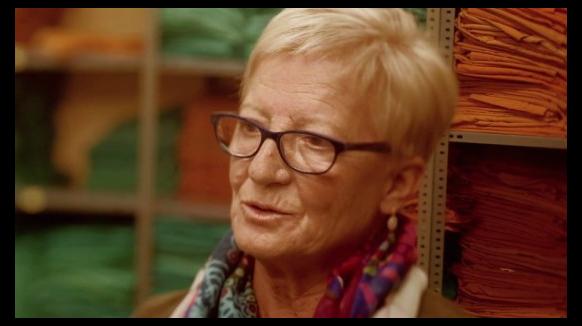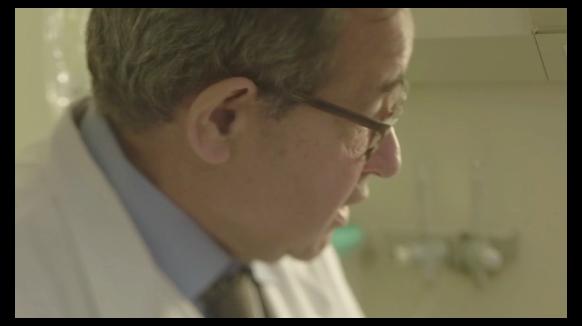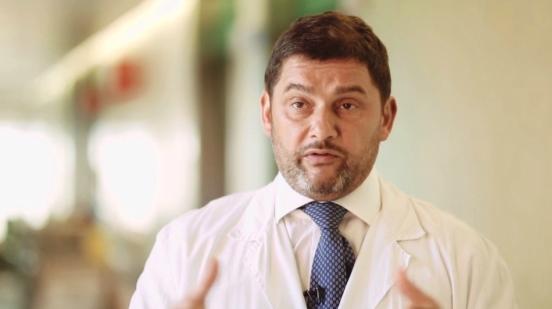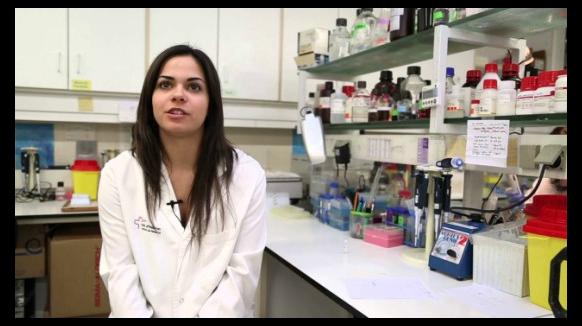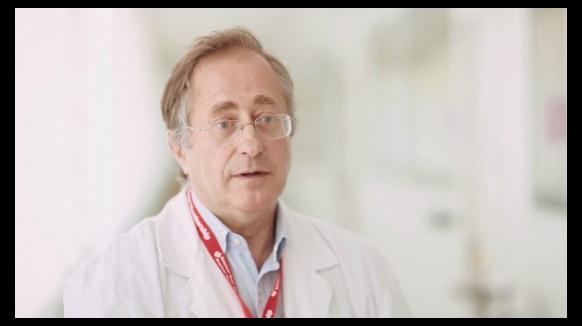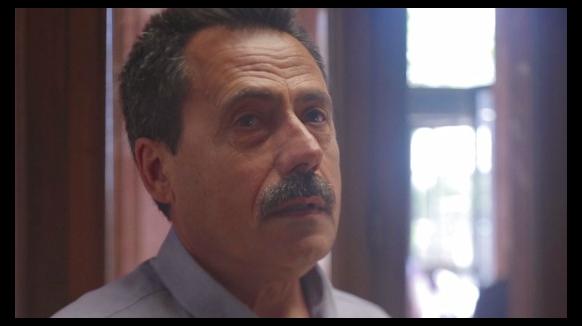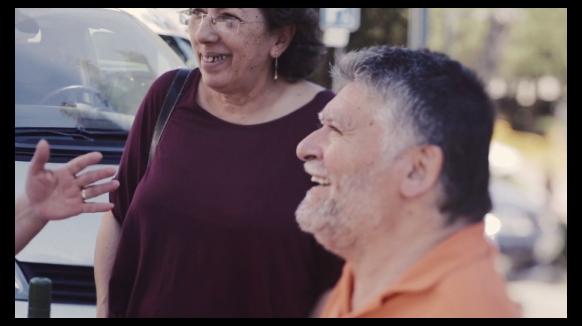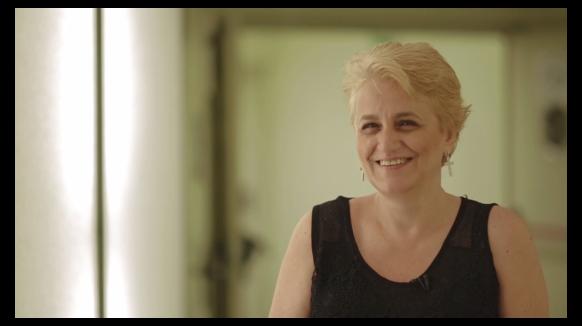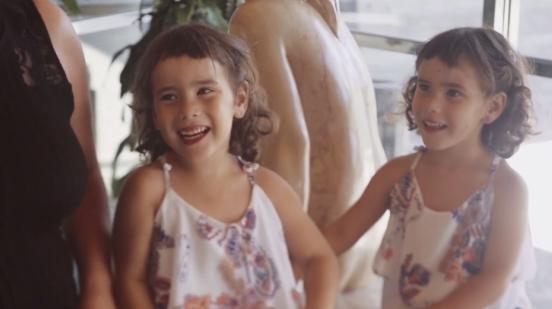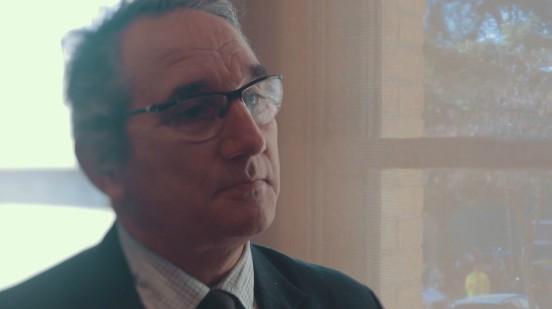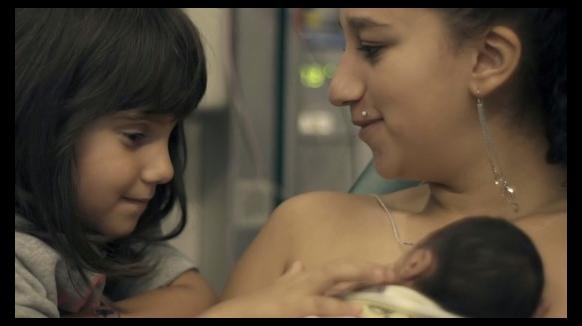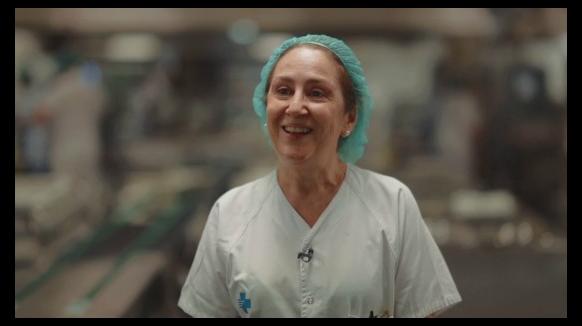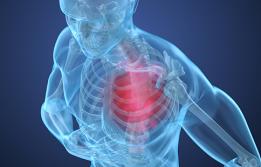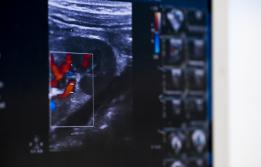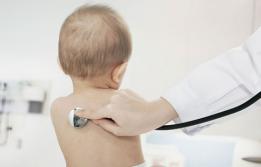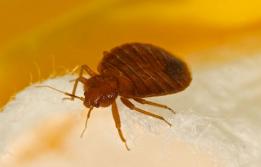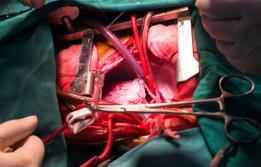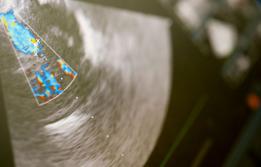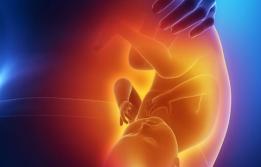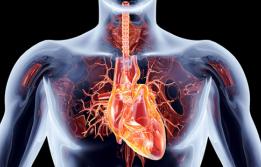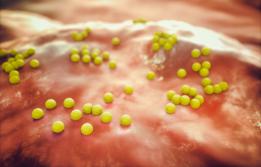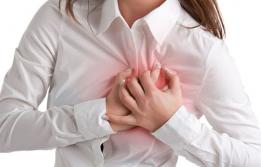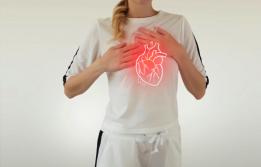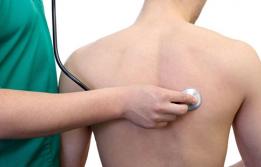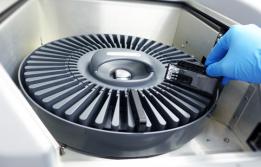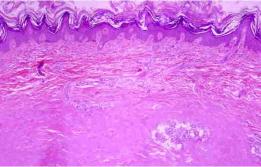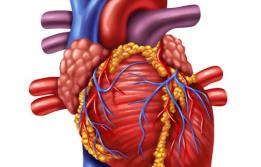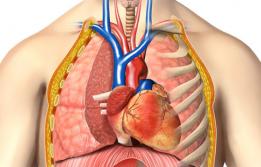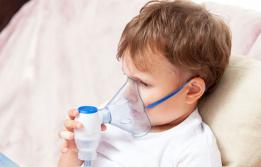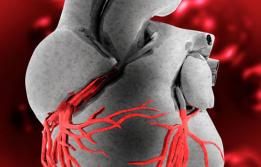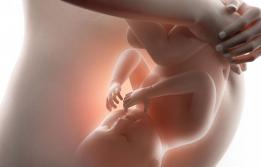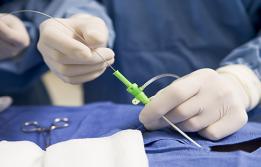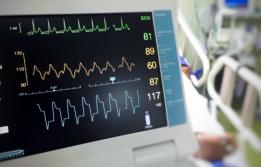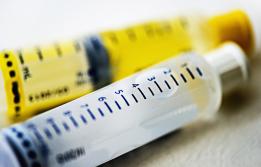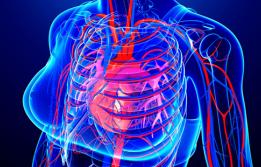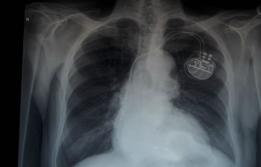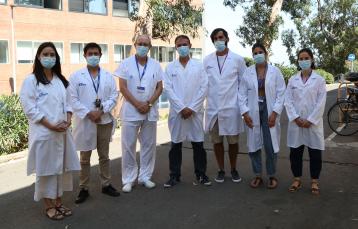Cardiovascular Critical Care Unit
The Cardiovascular Critical Care Unit is a part of the Cardiology Department at Vall d’Hebron. It treats people with acute and serious cardiovascular disease. It mainly looks after cases of complex ischaemic heart disease, such as acute myocardial infarctions or chest angina.
Description
The Cardiovascular Critical Care Unit (initially known as the Coronary Care Unit) was created in 1971 to admit patients with acute myocardial infarction, or other acute cardiovascular diseases. It also dealt with cardiac surgery post-operative care. In 1989 the unit was divided into two. The current Cardiovascular Critical Care Unit became responsible for the patients and became a part of the Cardiology Department.
The unit has 10 hospital beds for critical patients and 4 for semi-critical patients.Around 1,000 patients are admitted each year. Out of these admissions, two-thirds are due to an acute myocardial infarction. The remaining admissions are the result of other acute cardiovascular diseases, such as:
- Heart failure
- Non-ischaemic cardiogenic shock
- Cardiopulmonary arrest and other serious tachyarrhythmias and bradyarrhythmias
- Acute aortic syndrome
- Cardiac tamponade
- Admissions after complicated structural or electrophysiological interventional procedures
The unit also provides 24 hour support for cardiac emergencies via Vall d’Hebron Accident and Emergency Services. It also cares for outpatients.
The Cardiovascular Critical Care Unit offers the following advanced equipment and procedures:
- Continuous electrocardiogram and haemodynamic monitoring
- Electrocatheter implants
- Transthoracic and transoesophageal echocardiograms
- Pericardiocentesis
- Non-invasive and invasive ventilator support
- Circulatory support with a balloon pump
- Impella and ECMO veno-arterial device
- Therapeutic hypothermia
- Dialysis systems
Main diseases related to this speciality
Acute myocardial infarction and other acute heart diseases
This is the main cause for admission to the Cardiovascular Critical Care Unit. An acute myocardial infarction occurs when cholesterol plaques build up in the coronary arteries. These take the blood to the myocardium, the heart’s muscle tissue that is responsible for pumping the blood around the blood stream. When the blood flow in the coronary arteries decreases, a myocardial ischaemia occurs. It usually causes a pain similar to pressure on the chest, known as chest angina. When the coronary artery is completely obstructed, an acute myocardial infarction occurs which causes heart cells to die.
It is a serious illness and requires the artery to be opened immediately. This is usually done with a catheterisation. The patient is then admitted to the Cardiovascular Critical Care Unit. Their vital signs are monitored and any drugs needed are administered.Imaging tests and invasive procedures are done, if necessary. Possible complications, such as arrhythmias, cardiac arrest or repeat ischaemic episodes, are also treated.
Acute, or chronic flare-up, heart failure and cardiogenic shock
Heart failure is the heart’s inability to supply the blood properly to the rest of the body.The most frequent causes are ischaemic and myocardial heart disease. The main symptoms are difficulty in breathing and congestion of the entire body.
The most extreme level of heart failure is cardiogenic shock.This occurs when the heart has almost no capacity to pump blood and impacts on other organs such as the kidneys, liver, lungs, intestine or the brain. The treatment consists of coronary revascularisation, which is surgery to recover blood flow in the artery. Drugs and mechanical circulatory support systems are also used. A heart transplant is the last resort.
Cardiopulmonary arrest
Ventricular arrhythmias are a heartbeat disorder coming from the ventricles, which are the heart’s lower cavities. They can cause cardiopulmonary arrest if they occur in the context of an acute myocardial infarction or any other heart disease. Breathing and the heartbeat suddenly stop. They may cause the person's death if they are not immediately reanimated. Reanimation is done with heart massage, defibrillating with an electric shock and assisted breathing.
The most feared outcome after reanimation is brain damage. This may occur due to the lack of blood supply during the arrest. These patients are admitted to the Cardiovascular Critical Care Unit where they get brain support and protection while they recover.
Ventricular tachycardia and arrhythmic storm
Another reason for admissions is sustained or repeated ventricular arrhythmias. They are known as arrhythmic storms and can have serious consequences.They occur in patients affected by an infarction or other advanced structural heart disease. Patients with arrhythmias caused by hereditary heart disease also suffer from them.
Anti-arrhythmia treatment and ablation of the tachycardias, or fitting a defibrillator, are needed to stabilise the patient. In the most serious cases assisted breathing and circulation support devices may be necessary.
Atrioventricular block
This consists of the loss of electrical connection between the heart’s atria and ventricles. It frequently occurs in the elderly due to degeneration. It causes a very slow heartbeat. It can turn into fainting (syncope), a sudden, temporary loss of consciousness or heart failure. It is treated by fitting a pacemaker.
Acute aortic syndrome
The aorta is the body’s main artery. It may split, suffer internal bleeding or an ulcer on the walls. This can lead to very serious consequences, such as a rupture to the artery or a lack of blood flow to any organ. It frequently requires emergency surgical treatment.
Complications in congenital heart disease in adults and complications during pregnancy and postpartum in patients with congenital heart disease or other heart disease
The Cardiology Department is a benchmark for congenital heart disease in adults. The Cardiovascular Critical Care Unit cares for complications arising from the disease. For example, those occurring during pregnancy or postpartum. The unit provides complex surgical procedures for these cases.
Research
The Cardiovascular Critical Care Unit has a long tradition of research. It researches the fields of thrombosis, prognostic factors and complications in acute myocardial infarction, heart failure and cardiopulmonary arrest. It also studies nursing care for cardiovascular disease.
Its members have their own lines of research and participate in several research networks. The results of the research are regularly presented at cardiology conferences. They are also published in Spanish and international scientific journals. Several members of the unit belong to Catalan, Spanish and European scientific associations focusing on acute cardiovascular diseases.
Education
The Cardiovascular Critical Care Unit's team of professionals take part in academic education and practical training on the medicine and nursing degree courses. Cardiology residents usually spend time at the unit, along with residents in other specialities at the hospital. Residents from other hospitals in the Vall d’Hebron area and from other Spanish, European and Latin American hospitals also do so, where they are interested in training in caring for acute cardiovascular disease.
The unit's professionals regularly take part in training activities outside the hospital. They run master’s courses in cardiovascular disease, and collaborate on them. One of the unit’s members currently coordinates the Advanced Clinical Simulation Centre at Vall d’Hebron.
Experts
The Cardiovascular Critical Care Unit consists of medical and nursing professionals, assistants, porters and administrative staff. They work as a team and in close collaboration with the rest of the Cardiology Department and other departments at the hospital. The medical staff consists of a section head and four assistants, plus on-call doctors and residents.
The nursing team consists of a supervisor and thirty-two professionals. They are spread over four 12 hour shifts. Mercè Andorrà López is the current nursing supervisor.
